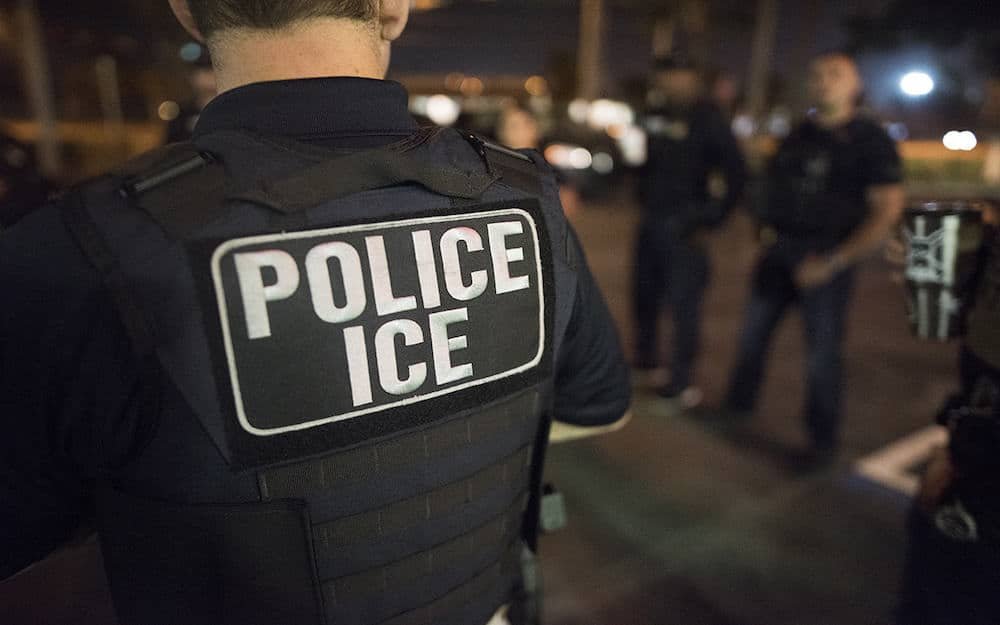Every sick immigrant should seek medical attention, insist U.S. Immigration and Customs Enforcement (ICE) officials.
In a statement issued on Friday, March 13, 2020, ICE reiterated that it does not conduct raids on medical facilities except in extraordinary circumstances.
Those who claim otherwise, ICE asserts, are spreading false information and "creating unnecessary fear within communities".
ICE also announced that it will temporarily suspend social visits at all detention centers as a precautionary measure to protect aliens in its care.
So far, they state that there are no confirmed cases of coronavirus disease 2029 (COVID-19) among detainees in ICE custody.
The Centers for Disease Control and Prevention (CDC) recommends that people who meet epidemiological risk criteria, but have fever or symptoms of respiratory illness, remain at home under a 14-day voluntary quarantine.
ICE Policy on Immigration Operations at Sensitive Locations
ICE agents generally avoid making arrests at sensitive locations, which include schools, places of worship, and health care facilities, such as hospitals, doctors' offices, accredited health clinics, and emergency or urgent care clinics, without prior approval of a waiver issued by ICE supervisors, or in extraordinary circumstances.
You can read more details about this policy in the following official ICE document: "Compliance actions in or focused on sensitive locations"Enforcement Actions At or Focused on Sensitive Locations.
ICE also has a page on their website with questions and answers on sensitive site operations.
ICE Protocols for Identifying and Caring for Detained Persons with COVID-19
According to ICE, they have CDC-guided protocols for protecting their employees and detainees in the event of a pandemic and detecting, isolating, and caring for persons with communicable diseases, including COVID-19.
Among the protocols:
- Appropriate use of personal protective equipment, in accordance with CDC guidance.
- Follow-up of the biological threat plan, the applicable portions of which were instituted in January 2020 following the identification of the potential COVID-19 threat.
- Maintain contact with offices of the Department of Homeland Security to address risks and interim controls in the workplace.
- Follow CDC recommendations and comply with instructions from health authorities.
Guide to screening for newly arrived detainees at ICE facilities:
Guidance includes isolating detainees who meet CDC guidelines for a person under investigation and observing them for a specified period of time. Consultation with the local health department may also be necessary.
ISOLATED ASYNTHOMATIC DETAINEES: may attend all medical appointments, wearing a surgical mask. ICE will notify the medical team of the detainee's status prior to the appointment to coordinate care and protect staff and other patients.
DETAINEES REQUIRING QUARANTINE: shall be placed in an appropriate setting in accordance with CDC or state and local health department guidelines.
Asymptomatic persons, or those with mild illnesses, can be placed in a medical infection isolation room specifically designed to contain biological agents, such as COVID-19. This prevents the spread of the virus to others and the general public.
Persons with moderate to severe symptoms, or those for whom guidelines suggest higher levels of care or surveillance, will be transferred to hospitals specializing in high-risk care.
Below is a Google Translate translation of the ICE statement:
13/3/2020 Update on ICE's statement on COVID-19
Statement attributable to an ICE spokesperson:
"Law enforcement agencies across the country, including ICE, are paying close attention to this pandemic. While our agents and law enforcement officers continue daily operations, making criminal and civil arrests, prioritizing individuals who threaten our national security and public safety, we remain committed to the health and safety of our employees and the general public. It is important for the public to know that ICE does not conduct raids on medical facilities, except in extraordinary circumstances. ICE policy directs our officers to avoid making arrests in sensitive locations, which include schools, places of worship, and health care facilities, such as hospitals, doctors' offices, accredited health clinics, and emergency or urgent care facilities, without prior approval of a waiver, or in exigent circumstances. See our frequently asked questions for more information.
"Following directives from other federal agencies, ICE is taking important steps to protect those in our care. As a precautionary measure, we are temporarily suspending social visits in all detention centers.
"The health, welfare, and safety of U.S. Immigration and Customs Enforcement (ICE) detainees is one of the agency's top priorities. Since the onset of the 2019 Coronavirus Disease (COVID-19) reports, ICE epidemiologists have been tracking the outbreak, periodically updating infection prevention and control protocols, and issuing guidance to ICE health care staff on medical assessments and how to manage possible virus exposure among detainees.
"ICE continues to incorporate CDC's COVID-19 guidance, which builds on already established infectious disease monitoring and management protocols currently in use by the agency. In addition, ICE is actively working with state and local health agencies to determine if any detainees require additional testing or monitoring to combat the spread of the virus."

